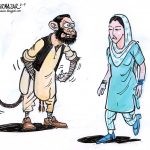
Sexual Harassment Legislation
Dr Fouzia Saeed has worked on the issue of sexual harassment for over two decades. She is widely recognized for her pioneering work on legislation in Pakistan. In 1997, she filed a landmark sexual harassment case against the United Nations in Pakistan, which she pursued and won over two years. This case had a historic impact on the UN system and Pakistani civil society.
Following this, she led a ten-year movement under the banner of AASHA (Alliance Against Sexual Harassment), a coalition of six core organizations and hundreds of allies. AASHA brought together the private sector, government, and working women to push for change. Their efforts resulted in the passage of two landmark laws by the Pakistani parliament in 2010—the Protection Against Harassment at the Workplace Act and amendments to the Penal Code—making Pakistan the first South Asian country to enact such legislation.
Her book “Working with Sharks” is a powerful autobiographical account that has become a key reference on the subject.
Dr. Saeed ensured that AASHA remained focused on institutional reforms in formal workplaces first, believing that structured environments could lead to enforceable change. She facilitated the development of a Code of Conduct for Gender Justice—a result of rigorous consultation with stakeholders including civil society, academics, labor representatives, and government officials.
Today, the 22nd of December is observed as a symbolic day to address workplace harassment, commemorating the date when Dr. Saeed and ten colleagues filed their complaint in 1997.
Awareness Programs
Dr. Fouzia Saeed developed various training packages in Urdu, English, and Dari for different audiences to raise awareness on sexual harassment. These include training videos for HR managers, educators, and other professionals. Currently, Maliha Hussain, Director of Mehergarh, leads the training programs, providing conceptual clarity, legal knowledge, and skills for inquiry committees.
Policy and Legislation Work
Under Dr. Saeed’s leadership, AASHA laid the groundwork for:
- Protection Against Harassment at the Workplace Bill (2009)
- Code of Criminal Procedure Amendment Bill (2009)
Dr. Saeed, then Country Director of ActionAid, supported AASHA’s formation and housed its secretariat, which later moved to Mehergarh. AASHA conducted a nationwide situation analysis and consulted widely before drafting the national anti-sexual harassment policy. These inclusive consultations involved employers, employees, civil society, and government representatives, making the policy truly reflective of Pakistan’s ground realities.
Dr. Fouzia Saeed’s work has left an indelible mark on workplace safety and gender justice in Pakistan.

Sexual Harassment Legislation
Dr. Fouzia Saeed is a trailblazer in Pakistan’s fight against sexual harassment, with over two decades of advocacy. In 1997, she filed a landmark harassment case against the United Nations in Pakistan—one she won after two years. This case made waves across both the UN system and Pakistan’s civil society.
She went on to lead a decade-long movement under AASHA (Alliance Against Sexual Harassment), a coalition of six key organizations and hundreds of allies. AASHA’s collaborative approach—engaging the private sector, government, and working women—led to two historic legal victories in 2010: the Protection Against Harassment at the Workplace Act and amendments to the Penal Code. Pakistan became the first South Asian country to pass such legislation.
Her book, Working with Sharks, is a powerful autobiographical account that remains a key reference on workplace harassment.
Believing that structured workplaces can anchor lasting change, Dr. Saeed kept AASHA focused on institutional reform. She also spearheaded the creation of a Code of Conduct for Gender Justice, developed through wide-ranging consultations with civil society, academia, labor, and government stakeholders.
The 22nd of December is now observed as a symbolic day to commemorate the 1997 filing of the complaint by Dr. Saeed and ten colleagues—a turning point in the movement for workplace safety.
Awareness Programs
Dr. Saeed developed extensive training materials in Urdu, English, and Dari for diverse audiences. These included practical video resources for HR managers, educators, and professionals. Today, Maliha Hussain, Director of Mehergarh, leads these programs—offering conceptual clarity, legal grounding, and inquiry committee skills.
Policy and Legislative Contributions
Under Dr. Saeed’s leadership, AASHA laid the foundation for:
- Protection Against Harassment at the Workplace Bill (2009)
- Code of Criminal Procedure Amendment Bill (2009)
As Country Director of ActionAid, Dr. Saeed supported the formation of AASHA and hosted its secretariat—later moved to Mehergarh. AASHA led a comprehensive national situation analysis and developed a policy grounded in inclusive consultations with employees, employers, civil society, and government bodies.
Dr. Fouzia Saeed’s unwavering efforts have fundamentally transformed the landscape of workplace safety and gender justice in Pakistan.

Bejamaloo – They are first cousins to Khumbe Shah but are found in offices. They are the self-proclaimed information keepers of the office, especially about women. Given an opportunity they jump to provide gossipy information to others.

Liberal Lofer – Some men take liberties with women under the garb of being liberal. They judge women who refuse their advances as conservative. Their age ranges from 18-95 years.

Lelu Likhari – He is the one who draws vulgar graffiti in bathrooms, abandoned walls, tourist sights and at times on other people’s notebooks.

Ustad Lucha – These men include wagon drivers and conductors of public transport who touch women in a sleazy manner: under the guise of changing gears, taking money or making room for other passengers.

Gaik Julabi – These men can’t help but sing a song or whistle when a woman passes by them. It is like dysentery of the mouth where they seem to have no control over their habit.

Mogambo Blackmailer – This guy takes photographs or makes a movie of a woman, putting her in compromising poses. Then he blackmails her for money or sexual relations with him and his friends.

Chachu Chaskora – He is interested in sniffing out the details of affairs that don’t concern him. Wanting to hear juicy stories and details, he puts unnecessary and inappropriate questions to women that relate to their personal life.

Nikama Jumley Baz – These guys make sleazy comments at women passersby in order to demean them. They have usually not accomplished much in their lives and look for interest in mundane activities.

Niswani Ghol – This group of women feels powerful because of their number and enjoys turning the table on a man—for instance, by embarrassing him through vulgar comments—when he is alone.

Dast daraz darzi – This is a tailor whose hands go to places that they shouldn’t while taking the measurements of his women clients.

Mr Chamkara – Fond of flashing his body, this person waits for the moment when a woman is alone in a street or an alley and then embarrasses her with the stark sight.

Dukhiari Madhobala – These women are the Dukhiara Dalip’s first cousins and they tell men their sad tales in order to gain their attention and sympathy. However, unlike their male cousin, these women use this sympathy to get men to do their chores.

Darinda dukandaar – These shameless shopkeepers harass their female customers by touching them inappropriately or by uttering phrases with double sexual meanings.

Khurchu – This man keeps scratching his body parts either because he doesn’t shower or because he has the itch to touch himself, especially in the presence of women. Whatever the reason, his actions offend women.

Dost Dushman – He befriends a woman by showing her dreams of a “happy ever after” but has bad intentions. He takes her beyond the limits she has set for intimacy and at times coerces or blackmails her into other unwilling activities.

Wehshi-tendant – These men supervise the work of women labourers in the fields, at brick kilns, or in factories. Unlike the Hocha Boss, who is more subtle in his tactics, these superintendents are quite blatant in their harassment and in the abuse of their authority.

Khabees on wheels – These men often stop their cars to offer rides to women walking on the street. They are also known to intimidate women drivers.

Behadetey Rakhey – These men are members of law enforcing agencies who rather than protecting women, do not let any opportunity to make passes at them or intimidate them pass them by. They are the biggest barriers for women seeking justice.

Shah Basha – These men enjoy top leadership positions in business or government. They think they own all women and feel free to make a pass at them. At times they even get them kidnapped. They are surprised at any complaints because they consider it their right as a king.
Statement of Demands from Working Women
A set of Demands from the Working Women of Pakistan
On the International Women’s Day
Dear Friends,
On the International Women’s Day, we have a common cause for all working women. We request that:
- The government and employers accept the right of women to work with dignity.
- A national code of conduct be adopted to end harassment of women at work.
- Employers establish committees to address women’s grievances and harassment complaints.
- The police take all complaints seriously and investigate promptly.
- All harassment victims have access to counseling and legal support.
- Ensure strict action against perpetrators.
Together we can make workplaces safe and respectful for women.
Signed,
Working Women of Pakistan
We demand that working women be accepted, respected, and clearly have a distinct position in society. This should be clear to the media, government officials, intellectuals, politicians, and anyone else making statements about women.
Working women deserve a safe and respectable environment to work. We consider it the responsibility of management to ensure that. However, we know that political leaders and the government must take responsibility to mandate management through legislation.
We demand that our politicians, through parliament and government machinery, pass a law mandating every registered body in private, public, or civil sectors to have an anti-sexual harassment policy in place.
We demand that every political party clearly state what they will do for working women in their mandate. They should also articulate their strategy for combating the most commonly experienced issue of sexual harassment at the workplace and adopt a policy against sexual harassment within their own parties.
Legislation that gives women protection against sexual harassment at work and in public places is our right. We demand amendments in current laws to ensure that. We want a firm accountability system for culprits and true implementation of the legislation in spirit.
The Government was part of developing and approving the Code of Conduct for Gender Justice, a policy document to address sexual harassment. After a long time, the Government has finally made an amendment to the Civil Service Laws (Esta Code), which we are pleased about. We would like an open announcement and release of the amendment orders. We would also like this amendment reflected in the corresponding provincial rules for government employees.
We demand that the Government institutionalize the Code of Conduct for Gender Justice (anti-sexual harassment policy) for all government hospitals and health services. The ordeal of women working in the health sector must end. We demand a safe and dignified work environment for nurses, doctors, and all women workers in the health sector.
We demand that the Government institutionalize the Code of Conduct for Gender Justice (anti-sexual harassment policy) for all government educational institutions. We demand a safe and dignified work environment for teachers, students, and all women workers in the education sector.
The media has been an ally in AASHA’s work and has helped propagate the message of adopting the Code of Conduct. We demand that the media, especially electronic media, show the plight of working women and the consequences of sexual harassment through its programs. The expansion of a woman’s traditional role to include work outside home and the positive profiling of working women should be taken as a key responsibility by the media.
We demand that the Government of Pakistan honor its international commitments, i.e., CEDAW, ILO Conventions 100 and 111, which cover fundamental rights of men and women at work.
We demand that the Government actively facilitate fulfilling the quota specifically allocated for women within government institutions and ensure a better and dignified work environment for them. This includes providing a clear mechanism for reporting any discrimination and harassment at the workplace and actively following the spirit of the Code.
We demand that owners and managers of private sector companies, industries, and businesses adopt the Code of Conduct for Gender Justice as their anti-sexual harassment policy within their human resource regulations.
We demand that all trade unions in the country adopt the Code of Conduct for their own workings. The national federations have already set an example.
We demand that civil society organizations be true to their agenda of social justice and walk the talk by adopting the Code of Conduct for their own organization to model a dignified work environment.
We demand employers as well as employees show individual and collective responsibility toward their staff and colleagues in creating a work environment with zero tolerance for sexual harassment.
The Alliance Against Sexual Harassment has been working closely with relevant Government Ministries, trade unions, and other bodies of employers and employees. For effective action, it is necessary that all related parties fulfill their commitments and responsibilities and commit to creating a work environment totally free of sexual harassment.

